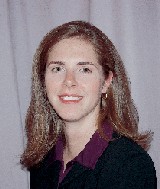 |
It was a typical Sunday night, which meant I didnt get much sleep. I dozed off easily enough, but then Id dream about my long to-do list and imminent disaster awaiting me at the office. An hour later, I was awake again, worrying.
This process repeated itself at least a dozen times before the alarm put an end to my misery. I sprung out of bed, relieved that I could stop worrying about the day ahead and start living it.
Im not ashamed to say that stress often gets the better of me. Its a common problem in American workplaces. At least one in four workers reports job stress; in one survey, 40% of workers describe their jobs as very or extremely stressful.1 Health-care workers are especially vulnerable, with 40% of U.S. physicians experiencing burnout, according to an article posted on the American Medical Associations Web site.2
Optometrists, however, are not very forthcoming when it comes to discussing stress associated with private practice. Associate Editor Jennifer Kirby discovered this while researching Overcome Private-Practice Burnout.
When Ms. Kirby solicited comments from O.D.s, the only thing she heard on the other end of the line was silence. So, she tried posting in a well-known optometric chat room. She asked if any private-practice O.D.s would discuss instances that caused so much stress that they experienced health problems, realized they had to change how they did things or both. Hundreds read the posting, but there were no replies.
Ms. Kirby shifted her efforts and began talking to psychologists, psychiatrists and other sources about this topic. She hoped that more O.D.s would reply in the meantime. No such luck. After almost a month, Ms. Kirby wondered if, perhaps, stress wasnt that big a factor in everyday optometric practice.
Interestingly, several optometrists did respond to our anonymous Web poll that asked: How stressed does your private practice make you? As of press time, 34% described themselves as very stressed, and 12% said they were on the verge of a breakdown.
Ms. Kirby concluded why so few optometrists replied to her queries: Many apparently viewed stress as a weakness to be ashamed of. Most health-care professionals have been trained with a work ethic that expects them to be married to their discipline, to just accept whatever time, if any, is left over for family and themselves, says Peter S. Moskowitz, M.D.
The result: They shut themselves down emotionally, denying that theyre unhappy and exhausted and that things are not going welluntil they inevitably spiral out of control, he says.
Dr. Moskowitz himself experienced burnout as a private-practice pediatric radiologista problem, he says, that nearly cost him his wife and children. He now provides career and life coaching to other health-care professionals.
Certainly, I can understand the never-let-them-see-you-sweat mentality. Growing up, my grandmother taught me about composure and how a strong, confident woman should carry herself in order to be respected, admired and trusted.
I imagine my grandmothers advice closely mirrors the health-care paradigm. As doctors, you spend your days focused solely on other peoples problems. You live to care for them, not yourself. You have to emanate confidence; otherwise, patients wont trust your advice. Most importantly, you must appear in control even when you know youre not.
I strongly encourage you to read the advice offered in this special report. It doesnt suggest that you change who you are or how you present yourself to patients. It simply illustrates that its OK, and in fact normal, to experience anxiety as an O.D., and it helps you to identify ways to separate your life from your lifes work. I can tell you first hand, it beats Tylenol PM.
1. National Institute for Occupational Safety and Health. Stress at work. www.cdc.gov/niosh/stresswk.html. (Accessed February 7, 2006)
2. Brody DS, Brody P. Clinical case 3: managed care and physician burnout. Virtual Mentor: Ethics Journal of the American Medical Association. 2003 Sep;5(9). www.ama-assn.org/ama/pub/category/10965.html. (Accessed January 10, 2006)

